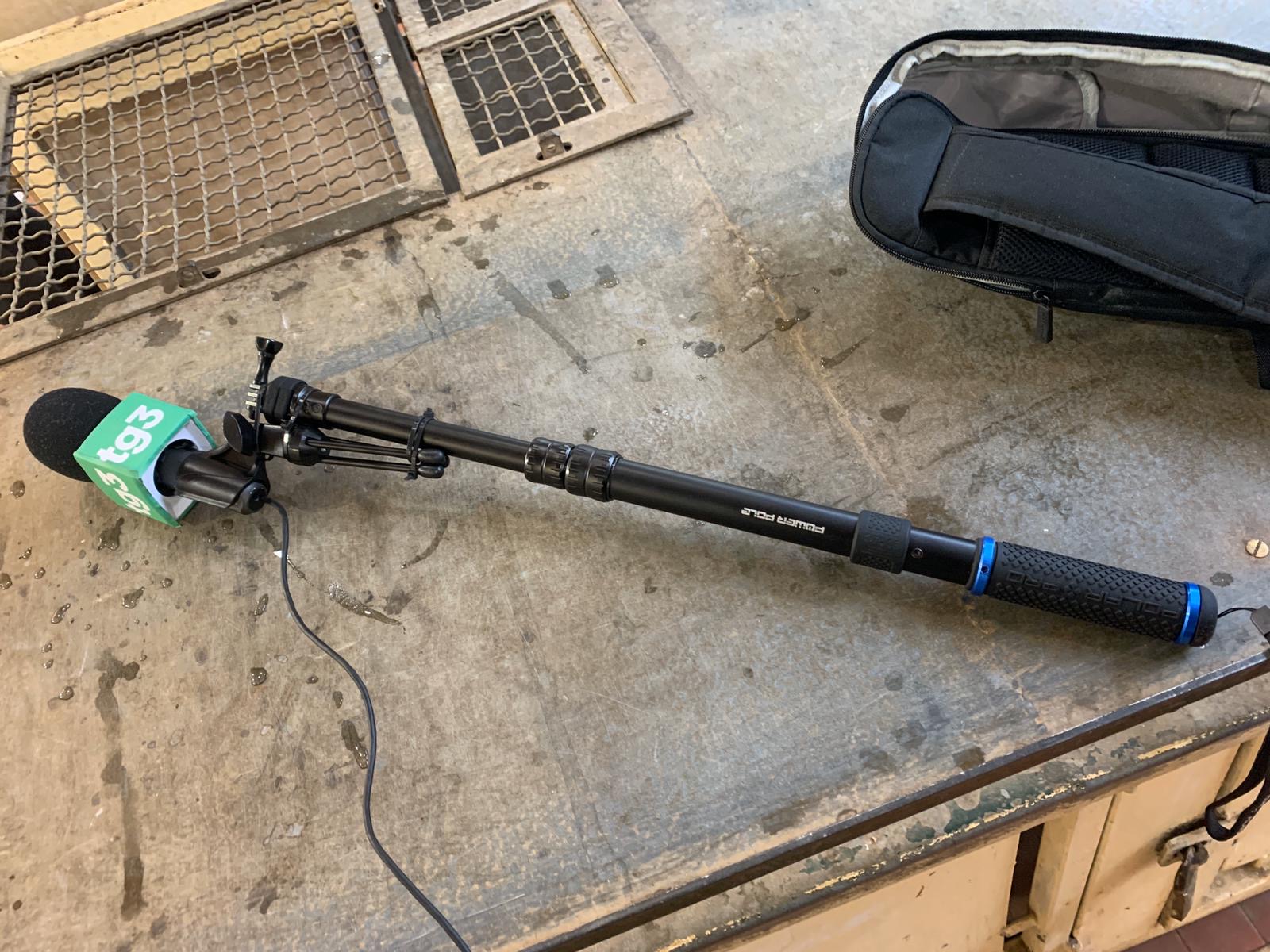
The streets of Italy are vacated during the coroavirus lockdown
Credit: Nico PiroItaly is one of the worst affected countries of coronavirus and the pandemic has been hugely disruptive to the news industry in the country.
While some journalists are working from home because of lockdown measures, Italian-based reporters can still go out and film the vacated streets - though they will probably be stopped by police and need to fill out the right paperwork and show press cards.
With that approach however, reporters must be mindful that there is a risk of not only spreading the infection to themselves, but also anyone else they come into contact with afterwards
What can they do to maintain safe practice? Nico Piro, mobile journalism trainer and special correspondent at Italy’s RAI, considers himself lucky to have some experience in this situation.
From filming in war-torn Afghanistan to reporting from Sierra Leone in 2015 at the height of the Ebola outbreak, he has had to adapt to different crises throughout his career. Those experiences have forged techniques to working in difficult circumstances.
"I never thought about going out in the streets of my home city with the same tactical approach," he said, explaining the considerations can be broken down into three main categories: technical, tactical and psychological.
Technical
Social distancing means that handheld and clip-on microphones are no longer an option for interviews.
A selfie stick would be the best method to record footage from a distance. But you can get creative and fashion a makeshift boom pole out of a few household items to get the job done.

Nico Piro
He later managed to get his hands on an actual boom pole, which he recommended as it is lighter to carry and easier to balance.
Masks are essential, obviously, when interviewing people face to face. But it is also worth having a few options to film with. Piro uses a combination of his iPhone, a mirrorless camera and a GoPro depending on the situation.
Smartphones are good for close-ups of objects in stores like supermarkets and pharmacies, while his mirrorless camera offers good zooming capabilities to keep him and his interviewee apart. The GoPro is more protected, so can shoot footage that would be otherwise difficult for fear of damage. It can also be mounted on his body for a second camera angle.
"The GoPro saved me in Sierra Leone because I was able to enter the red zone, where all the sick people were, because the GoPro could be submerged in disinfectant for two hours," he said.
Stores closed, streets empty but the sun always shines even if the virus is around This is #rome under #lockdown during the #covid #coronavirus age
— Nico Piro (@_Nico_Piro_) March 24, 2020
Let policeman, first responders, delivery guys, reporters out there
while you #StayHome #StaySafe #Hope #mojo #filmicfirstlight pic.twitter.com/kdBbbkOOAE
Tactical
Reporting in a lockdown means that reporters have to rethink their workflow. In normal circumstances, Piro would be accompanied by a cameraman, but with the risk of spreading infection, he currently opts to work alone.
Working solo means reporters are forced to work faster in the field and make the most of what they capture.
"I prefer to use the approach I used in Afghanistan; going out by myself, get the targets quick, and get out fast."
Another challenge, he explained, is staying away from the newsroom. This is less of an issue as it is easier to edit from home and on mobile devices.
However, even with strict measures, some offices have been forced to close at short notice and be disinfected. In one instance, RAI's main production centre near Rome was closed to be disinfected. It meant the news bulletin was instead broadcasted by the editorial team based in Milan.
Psychological
As much as journalists will still want to speak to members of the public, Piro said they must understand that people are reluctant to stop and do on the spot interviews. They would feel exposed and might see reporters as potential carriers of the infection.
For the same reason, they are less comfortable being filmed, though this has the added concern that this proves they were out in public and could face subsequent fines.
"I usually accept rejection because I try to understand how they feel. You mostly meet people who don’t feel like they want to talk because they are in shock.
"You cannot insist; you have to be more empathetic than usual with people you want to get involved in your story."
Want to receive journalism news and job updates straight to your phone? Subscribe to Journalism.co.uk on our Telegram jobs channel for latest job opportunities, and our news channel for a weekly digest every Monday morning.
Free daily newsletter
If you like our news and feature articles, you can sign up to receive our free daily (Mon-Fri) email newsletter (mobile friendly).
Related articles
- #JournalismMatters: Journalism is society's safety net
- How writing fiction has helped me deal with PTSD, with Northern Irish journalist Leona O'Neill
- Six self-care tips for journalists to stay sane during the general election
- New project InOldNews wants to improve representation in video journalism
- Annette Young, TV news presenter, France 24, on running a news show about gender inequality









